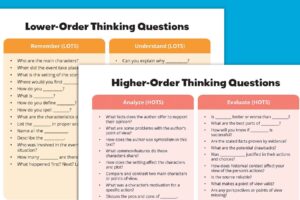ED Digs Its Heels in Over Student Loan Caps
After two days of talks, Department of Education officials have made it clear that they won’t budge over some new student loan regulations.
Specifically, the department has said it won’t negotiate its proposed definition of a professional program, at least for now. That definition limits the category to 10 specific degrees, including law, medicine and theology.
“At this point, we would like to keep the language where it is,” Tamy Abernathy, the department’s director of policy coordination, said Tuesday morning. “It’s not an exhaustive list, but it is fixed at this point in time, with the caveat that if it needs to be negotiated at a future date, it would be.”
If the department stands firm on this position, dozens of health-care graduate programs, like clinical psychology and occupational therapy, would not be on the list and could be subject to a $20,500 annual cap on student loans. If these programs were to be deemed professional, federal student loans would be capped at $50,000 a year and $200,000 over all. (Graduate programs are capped at $100,000 over all.)
With a lower cap, the programs could see steep enrollment drops and some might have to close, experts say. But members of the advisory committee tasked to weigh in on the department’s proposals pushed back over the first two days, and some are hopeful that the tone of conversation will shift for the remainder of the week.
At the very end of Tuesday’s meeting, committee members submitted their own definition for professional programs, which has not been released to the public but will be discussed Wednesday. The committee is scheduled to meet through Friday and then for another week in November before voting on the regulatory changes. If the committee doesn’t reach unanimous consensus, the department can propose its own draft regulations, which will be subject to public comment.
Education Under Secretary Nicholas Kent said in a statement to Inside Higher Ed shortly after Tuesday’s meeting that the department is continuing to negotiate in good faith but is aiming “to curb excessive graduate student borrowing in the federal student loan program.”
“At this time, we remain persuaded that limiting the list of eligible programs to those defined in current regulation—while remaining open to expanding that list through future rule making—is the better approach for both students and taxpayers,” Kent said. “We are committed to working with negotiators and the public to hear and thoughtfully consider differing perspectives.”
This round of rule making is just one part of the department’s larger effort to quickly interpret Congress’s sweeping overhaul of federal student aid through the One Big Beautiful Bill Act, which was signed into law in July. When it comes to student loans in particular, ED has to clarify each of the law’s provisions and implement them before the July 1, 2026, deadline.
Higher ed experts say that heated debate over how to define professional versus graduate programs reflects how the loan caps are likely one of OBBBA’s most consequential changes for the sector.
The department’s “limited list of programs designated as professional could have big implications for students,” said Karen McCarthy, vice president of public policy for the National Association of Student Financial Aid Administrators. “It could push some students into the private student loan market, which has fewer borrower protections than federal student loans, or limit access for [others] who are unable to obtain private loans. This could lead to lower numbers of graduates in highly critical career fields such as mental health, nursing and education.”
An Appetite for Change?
The department’s latest proposal, as of Tuesday, was similar to the existing statutory definition cited by Congress in the new legislation, which says a professional program must prove a student has the skills necessary beyond a bachelor’s degree to pursue a certain licensed profession.
But the statutory definition from the Higher Education Act of 1965 includes a nonexhaustive list of examples; the department’s proposal is finite. The HEA definition says, “Examples of a professional degree include, but are not limited to,” whereas the department’s proposal says, “These programs are designated as professional” and then lists 10 degrees: in pharmacy, dentistry, medicine, osteopathy, law, optometry, podiatry, veterinary medicine, chiropractic medicine and theology.
Abernathy explained that despite removing the phrase “including but not limited to,” the department’s proposal is not exhaustive, as it gives the secretary flexibility to designate additional professional degrees through rule making in the future. So while the department does not “have an appetite” to change the definition now, that doesn’t mean it wouldn’t be able to later, she said.
But several committee members were not satisfied with that explanation. Scott Kemp, a student loan advocate for the Virginia higher ed council and the committee member representing state officials, said he came to the table with the understanding that the department was open to changing that list now.
“We’re already in rule making right now, and there’s an opportunity to do that here,” he said. “I guess the understanding is that that door has been closed. But for our constituents who disagree with this list and have been giving us an earful about it, what would it take to have the secretary designate a rule-making process to discuss the list?”
Andy Vaughn, president of a for-profit graduate school in California and the representative for proprietary institutions, said that in his view the most “glaring omission” from the list is mental health practitioners.
“We rarely have a week in our country where some national story about mass violence doesn’t hit our news feeds, and every time that happens, mental health is the foundational, seminal place that we point to,” Vaughn said. “So including mental health license programs—one way or the other—is really critical, because this is going to decimate the pipeline of mental health professionals.”
In a later interview with Inside Higher Ed, he added that while he agrees the overall price of tuition is too high, it’s “really hard” to get certain high-cost programs, especially those that take three or more years, under the $100,000 limit for programs that are not deemed professional.
And even if the department were to come back to the table to amend the list at a later date, he believes it would be “too late,” as enrollment for many high-demand programs would have already dramatically declined.
“It’s hard to say with certainty what exactly happens if professional designation is not granted,” he said. “But I can tell you with certainty it’s not going to increase the pipeline.”
Vaughn, Scott and eight other committee members representing taxpayers, state officials and various types of universities broke out into a private caucus twice during Tuesday’s meeting to further discuss the definition. By the end of the day, they’d drafted a new proposal that will drive the conversation with department officials tomorrow.
“The department has said they’re willing to have this conversation, but I believe we must,” Vaughn said.
Source link



